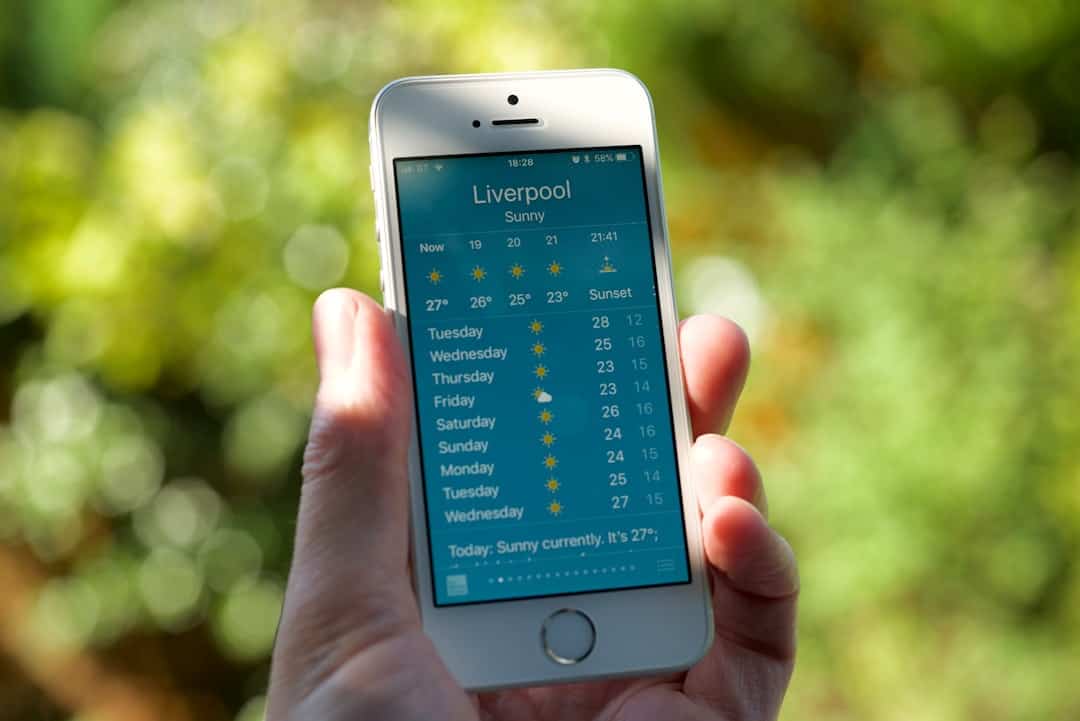The concept of smart home management has evolved significantly over the past decade, transforming the way individuals interact with their living spaces. Smart home technology encompasses a wide array of devices and systems designed to enhance convenience, efficiency, and security within the home environment. From smart thermostats that learn user preferences to intelligent lighting systems that can be controlled remotely, the integration of technology into everyday living has become increasingly prevalent.
This shift is not merely about automation; it represents a fundamental change in how we perceive and utilize our homes, making them more responsive to our needs and lifestyles. At the heart of this transformation lies the ability to manage these devices seamlessly. Smart home management systems allow users to control various aspects of their homes from a centralized platform, often through smartphones or tablets.
This integration provides a level of convenience that was previously unimaginable, enabling homeowners to monitor and adjust their environments from virtually anywhere. As the Internet of Things (IoT) continues to expand, the potential for smart home management grows, promising a future where homes are not just structures but intelligent ecosystems that adapt to their inhabitants.
Key Takeaways
- Smart home management is the use of technology to control and automate various aspects of a home, such as lighting, heating, and security.
- Smartphones play a crucial role in smart home management, serving as a central hub for controlling and monitoring smart home devices.
- The integration of smart home devices with smartphones allows for seamless control and automation of various home functions from a single device.
- Advancements in smartphone technology, such as improved connectivity and processing power, have enhanced their capabilities for smart home management.
- Security and privacy concerns arise with the use of smartphones as central hubs for smart home management, requiring careful consideration and implementation of protective measures.
The Role of Smartphones in Smart Home Management
Smartphones have emerged as pivotal tools in the realm of smart home management, serving as the primary interface through which users interact with their connected devices. The ubiquity of smartphones means that most individuals already possess a powerful computing device capable of managing various aspects of their homes.
This accessibility has democratized smart home technology, allowing a broader audience to engage with and benefit from these innovations. Moreover, smartphones facilitate real-time communication between users and their smart home devices. Notifications about security breaches, energy usage, or maintenance reminders can be sent directly to a user’s phone, ensuring that they remain informed about their home’s status at all times.
This immediacy not only enhances convenience but also contributes to improved safety and energy efficiency. For instance, if a user receives an alert about an open door or window while away from home, they can take immediate action, such as locking the door remotely or notifying authorities if necessary.
Integration of Smart Home Devices with Smartphones

The integration of smart home devices with smartphones is a cornerstone of effective smart home management. Various manufacturers have developed applications that allow users to connect their devices to their smartphones seamlessly. These applications often serve as control panels, providing users with the ability to customize settings, create schedules, and monitor device performance.
For example, a smart thermostat app can enable users to set temperature preferences for different times of the day or even adjust settings based on their location using geofencing technology. Interoperability among devices is another critical aspect of this integration. Many smart home ecosystems support multiple brands and types of devices, allowing users to create a cohesive network within their homes.
Platforms like Google Home and Amazon Alexa have become central hubs for managing diverse devices from different manufacturers. This compatibility ensures that users can build a personalized smart home experience tailored to their specific needs without being locked into a single brand’s ecosystem.
Advancements in Smartphone Technology for Smart Home Management
As smartphone technology continues to advance, so too does its capability in managing smart homes. Modern smartphones are equipped with powerful processors, high-resolution displays, and advanced sensors that enhance user interaction with smart home devices. For instance, augmented reality (AR) features in smartphones can allow users to visualize how new furniture or decor will look in their space before making a purchase.
This capability extends to smart home management as well; users can interact with their devices in more intuitive ways, such as using voice commands or gestures. Additionally, improvements in battery life and connectivity options have made smartphones even more reliable as central hubs for smart home management. The advent of Wi-Fi 6 and Bluetooth 5 has increased data transfer speeds and range, allowing for smoother communication between devices.
This means that users can control their smart home systems without experiencing lag or connectivity issues, even when multiple devices are in use simultaneously. Furthermore, advancements in artificial intelligence (AI) within smartphones enable more sophisticated automation and predictive capabilities, allowing devices to learn user habits and preferences over time.
Security and Privacy Concerns in Smart Home Management via Smartphones
While the integration of smartphones into smart home management offers numerous benefits, it also raises significant security and privacy concerns. The interconnected nature of smart devices means that vulnerabilities in one device can potentially compromise the entire network. Cybersecurity threats such as hacking or unauthorized access can lead to serious consequences, including breaches of personal data or even physical security risks if smart locks or cameras are involved.
Moreover, privacy concerns arise from the data collection practices associated with many smart home devices. Users often unknowingly share sensitive information with manufacturers or third-party applications when they connect their devices to smartphones. This data can include usage patterns, personal preferences, and even location information.
As such, it is crucial for users to be aware of the privacy policies associated with their devices and applications and to take proactive measures to secure their networks, such as using strong passwords and enabling two-factor authentication.
Potential Challenges and Limitations of Smartphones as Central Hubs for Smart Home Management

Despite the advantages of using smartphones as central hubs for smart home management, several challenges and limitations persist. One significant issue is the reliance on internet connectivity; many smart home devices require a stable internet connection to function properly. In areas with poor connectivity or during outages, users may find themselves unable to control their devices or access critical features.
This dependency can be particularly problematic in emergency situations where immediate access to security systems or alarms is necessary. Another challenge is the potential for device compatibility issues. While many manufacturers strive for interoperability, not all devices work seamlessly together.
Users may encounter difficulties when trying to integrate products from different brands or when updates cause previously compatible devices to lose functionality. This fragmentation can lead to frustration and may deter some users from fully embracing smart home technology.
The Impact of 5G Technology on Smartphones as Central Hubs for Smart Home Management
The rollout of 5G technology is poised to revolutionize the landscape of smart home management through smartphones significantly. With its ultra-fast data transfer speeds and low latency, 5G enables real-time communication between devices without the delays associated with previous generations of mobile networks. This advancement means that users can control their smart home systems more efficiently and effectively than ever before.
Furthermore, 5G technology supports a greater number of connected devices within a single network without compromising performance. As homes become increasingly populated with smart devices—from security cameras to kitchen appliances—the ability to manage them all simultaneously becomes crucial.
The Future of Smartphones as Central Hubs for Smart Home Management
Looking ahead, the future of smartphones as central hubs for smart home management appears promising yet complex. As technology continues to evolve, we can expect further advancements in AI and machine learning that will enable smarter automation and predictive capabilities within homes. Smartphones will likely become even more intuitive interfaces that anticipate user needs based on historical data and contextual awareness.
Moreover, as sustainability becomes an increasingly important consideration for consumers, smartphones may play a pivotal role in managing energy consumption within smart homes. Applications could provide real-time insights into energy usage patterns and suggest optimizations for reducing waste. This shift towards eco-friendly living will likely drive innovation in both smartphone technology and smart home devices.
In conclusion, while challenges remain in the integration of smartphones into smart home management systems, ongoing advancements in technology promise a future where these devices serve as indispensable tools for creating efficient, secure, and responsive living environments. As we continue to embrace the possibilities offered by smart technology, our homes will evolve into intelligent spaces that enhance our quality of life in unprecedented ways.
In a related article discussing the evolution of technology, Originally Launched as a Part of Gawker Media Network, explores the history and impact of various digital platforms. As smartphones continue to advance in capabilities, they are increasingly becoming central hubs for managing smart homes. This shift towards interconnected devices is highlighted in the article, showcasing the potential for smartphones to streamline and enhance the way we interact with our living spaces. As technology continues to progress, the integration of smart home management into smartphones is poised to revolutionize the way we live and interact with our surroundings.
FAQs
What is a smart home?
A smart home is a residence that uses internet-connected devices to enable the remote monitoring and management of appliances and systems, such as lighting and heating.
What is a smart home hub?
A smart home hub is a central device that connects and controls all the smart devices in a home, allowing them to work together seamlessly.
How are smartphones becoming central hubs for smart home management?
Smartphones are increasingly being used as central hubs for smart home management due to their ability to control and monitor various smart devices through dedicated apps and voice assistants.
What are the advantages of using a smartphone as a central hub for smart home management?
Using a smartphone as a central hub for smart home management provides convenience, as it allows users to control and monitor their smart devices from anywhere with an internet connection. It also reduces the need for multiple separate control devices.
What types of smart home devices can be controlled through a smartphone?
Smartphones can control a wide range of smart home devices, including thermostats, lighting, security cameras, door locks, and entertainment systems.
What are the potential challenges of using a smartphone as a central hub for smart home management?
Potential challenges include compatibility issues between different smart devices and the smartphone, as well as concerns about privacy and security when using a smartphone to control various aspects of the home.

